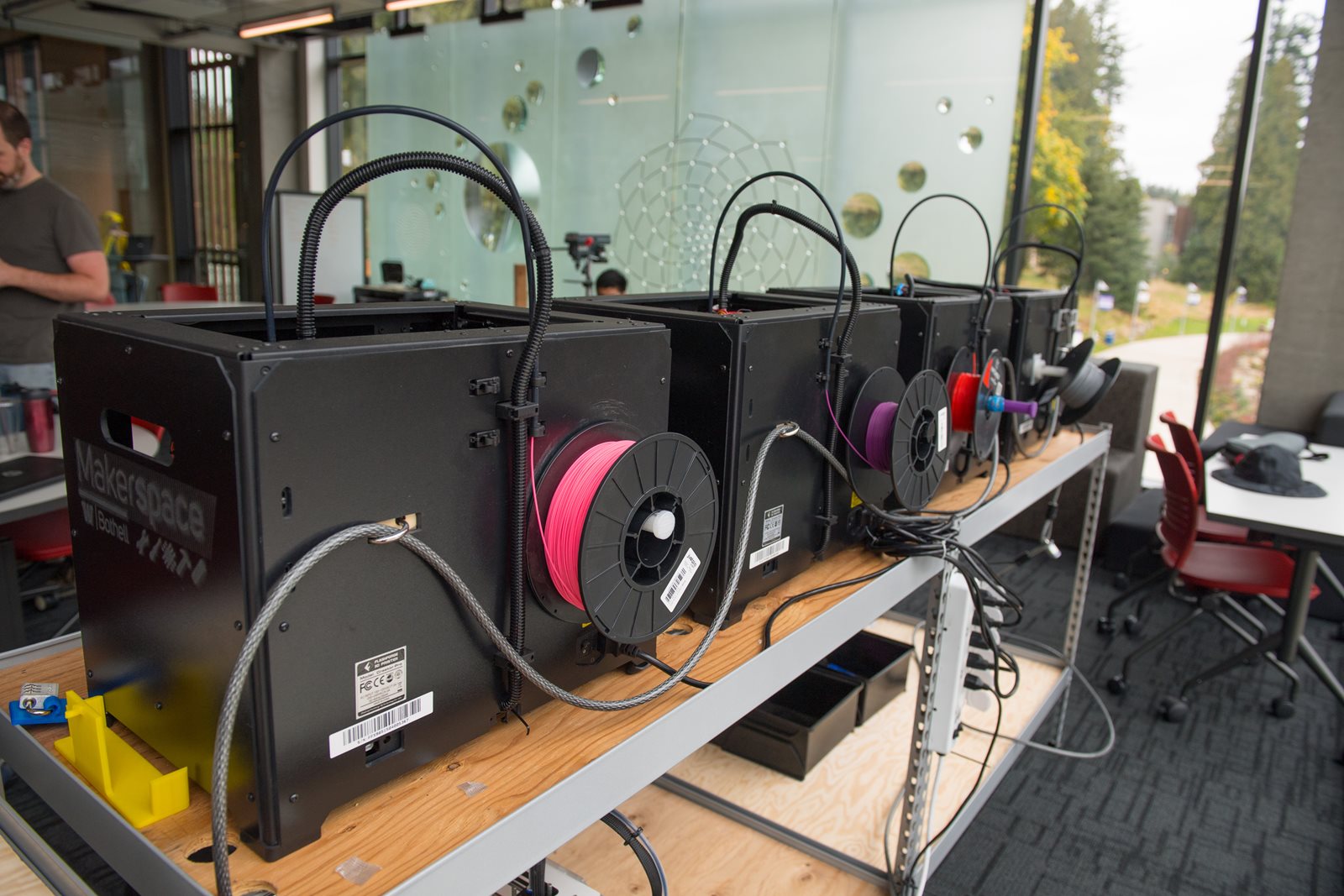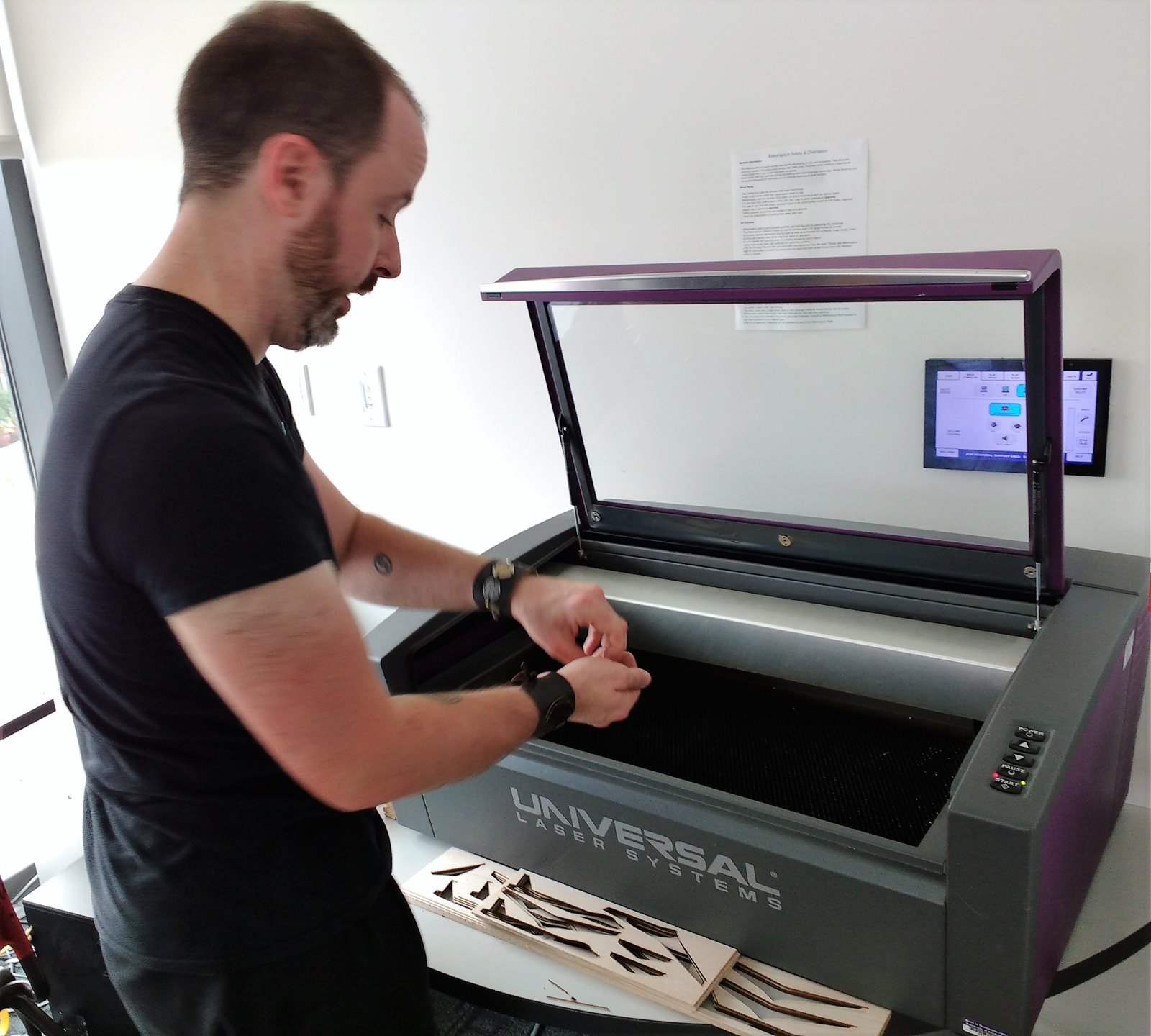
Students Jhe Retzlaff, left, and Morgan Thomas check camera at IT help desk. (Marc Studer photo)
By Douglas Esser
University of Washington Bothell students controlled the spending of $383,000 on technology this spring, including four new 3-D printers for the Makerspace workshop and the latest cameras for checkout from the information technology help desk.
These new resources approved by the UW Bothell Student Technology Fee Committee come from the $42 technology fee that students pay each quarter, said Terry Hill, the UW Bothell Student Affairs official who advises these students.
The new spending also will fund OrgSync, the website platform used by more than 100 student clubs and organizations, will pay for computers in the Open Learning Lab and will provide electronics for the Student Success Center, Disability Resource Center and the university's new diversity center.

Photo: 3-D printers at Makerspace
This current round of investment was the second funding cycle for the year. The first cycle funded items worth nearly $136,000, including cameras, video and audio equipment for the IT help desk, student-use computers in the library and computers for the Writing and Communication Center. The complete list of STF spending is available online.
STF spending decisions are entirely in the hands of students, says Hill. Committee members are appointed by the Associated Students of the University of Washington Bothell (ASUWB). The committee will accept applications for the next funding cycle in December.
“I am proud of the technologies that the committee has funded that I see in use (or use myself) on a regular basis,” said Timothy Elmer, a senior in computer science and software engineering who served as the committee secretary.
Makerspace manager Ivan Owen says the current STF-funded laser cutter he's using in the photo, left, is one of the lab’s most popular tools and sometimes students have to line up to use it. A new cutter will not only meet demand but be bigger, with a more-powerful laser capable of burning through thicker wood, leather and plastic.

Makerspace laser cutters and 3-D printers give UW Bothell students access to rapid prototyping and the opportunity to explore new methods of manufacturing, Owen says. STF is paying for all of the new equipment going into Makerspace.
The student technology fee also has funded all of the circulating equipment purchased in the past two years for the IT help desk – more than $100,000 worth of cameras, video and audio gear, said Adri MacArthur, assistant manager for UW Bothell Information Technologies Services. MacArthur sees the importance of the equipment on the faces of students when the desk has to enforce the no-reservations, one-week limit.
“You can tell by how happy they are when they get it and how stressed they are when we run out,” MacArthur says.
IT help desk student employees Morgan Thomas (IMD ’19) and Jhe Retzlaff (IMD ’19) see demand rise with multimedia assignments. Retzlaff has checked out gear himself as a student. “Pretty helpful to get it for free. Pretty nice.”
The fee generates about $600,000 a year. About 5 percent is withheld for financial aid, and about 20 percent saved for long-term expenses, such as technology for the planned second phase of the Activities and Recreation Center, Hill said. Some of the funds also are committed to support technology on all three UW campuses, such as email.

Urooj Qureshi, a mechanical engineering senior, was chair of the committee last year and plans to apply for a committee position again to help maintain continuity in the funding process.
Photo: Orooj Qureshi in the library where the computers in the background were provided by the student technology fee.
“We hope that by being able to promote the growth of technology on campus that we can make student life easier for everyone,” Qureshi said. “We try to make sure this money is handled well.”



